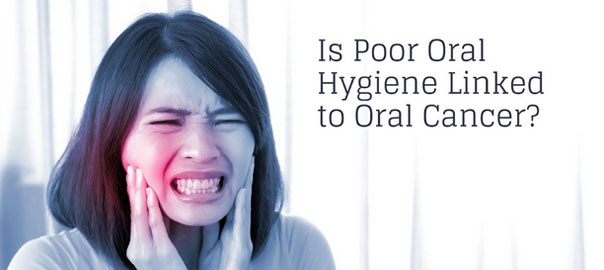
Can Bad Oral Hygiene Lead to Oral Cancer?
Oral health plays a crucial role in our overall well-being, and maintaining good oral hygiene is essential to prevent a wide range of oral health issues. Among the potential risks associated with poor oral hygiene, one of the most alarming is oral cancer.
While the exact causes of oral cancer are multifactorial and complex, emerging evidence suggests that neglecting oral hygiene could contribute to an increased risk of developing this deadly disease. This article aims to delve into the connection between bad oral hygiene and oral cancer, shedding light on the importance of maintaining a healthy mouth to safeguard against this ominous threat.
Understanding Oral Cancer
Oral cancer refers to malignancies that develop within the oral cavity, including the lips, tongue, cheeks, floor of the mouth, and the hard and soft palates. It is a formidable public health concern, accounting for significant morbidity and mortality worldwide.
The majority of oral cancers are classified as squamous cell carcinomas, which originate in the thin, flat cells lining the oral mucosa. Like many forms of cancer, oral cancer is influenced by a combination of genetic, lifestyle, and environmental factors.
The Role of Bad Oral Hygiene
Bad oral hygiene practices can lead to a myriad of oral health issues, such as cavities, gum disease (gingivitis and periodontitis), and tooth loss. While these conditions are concerning in their own right, they may also contribute to the development and progression of oral cancer. Several mechanisms underlying the relationship between bad oral hygiene and oral cancer:
- Inflammation: Poor oral hygiene allows bacteria to flourish, leading to inflammation of the gums (gingivitis) and, if left untreated, more severe periodontal disease. Chronic inflammation in the oral cavity can create an environment conducive to the growth and spread of cancer cells.
- DNA Damage: The bacteria that accumulate due to bad oral hygiene can produce harmful byproducts, including carcinogenic substances. These substances can damage the DNA of oral cells, potentially triggering the development of cancerous mutations.
- Immune Response: An unhealthy mouth may compromise the immune system’s ability to detect and destroy abnormal cells, increasing the likelihood of cancerous cells escaping surveillance and thriving.Growth Factors: Chronic inflammation caused by bad oral hygiene may lead to the release of growth factors that promote the growth and survival of cancer cells.
- HPV Infection: Poor oral hygiene has been linked to an increased susceptibility to certain infections, including human papillomavirus (HPV). HPV infection is a significant risk factor for oral cancer, particularly in the oropharynx.
Preventing Oral Cancer Through Good Oral Hygiene
The relationship between bad oral hygiene and oral cancer underscores the importance of adopting and maintaining proper oral care practices. Here are some essential steps individuals can take to reduce their risk of oral cancer:
- Brushing and Flossing: Regular and thorough brushing and flossing help remove plaque, bacteria, and food particles that can contribute to gum disease and other oral health problems. Brushing should be done twice a day with a fluoride toothpaste.
- Regular Dental Visits: Routine dental check-ups allow for the early detection and management of oral health issues. Dentists can identify and address potential concerns before they escalate into more serious problems.
- Tobacco and Alcohol Avoidance: Smoking and excessive alcohol consumption are two of the most significant risk factors for oral cancer. Quitting smoking and moderating alcohol intake can greatly reduce the likelihood of developing oral cancer.
- Balanced Diet: A diet rich in fruits and vegetables provides essential nutrients and antioxidants that help support a healthy immune system and combat inflammation.
- Protection from HPV: Practicing safe sexual behaviors and considering the HPV vaccine can reduce the risk of HPV-related oral cancers.
- Self-Examinations: Regularly inspecting your mouth for any unusual changes, such as persistent sores, lumps, or discoloration, can facilitate early detection and prompt medical attention if needed.
Conclusion
While bad oral hygiene alone may not directly cause oral cancer, its significant role in promoting an environment conducive to cancer development cannot be overlooked. Maintaining good oral hygiene is not only crucial for preventing common dental problems but also for mitigating the risk of oral cancer. By adopting healthy oral care practices, individuals can play an active role in safeguarding their oral health and well-being. As we continue to unravel the complex interplay between oral hygiene and oral cancer, it becomes increasingly evident that a healthy mouth is not only a gateway to a beautiful smile but also a vital component of overall health. By: Dr. Nayanika Batra
Leave a Reply
Leave a Reply
Explore More Similar Posts
Explore More Blogs


Leave a Reply